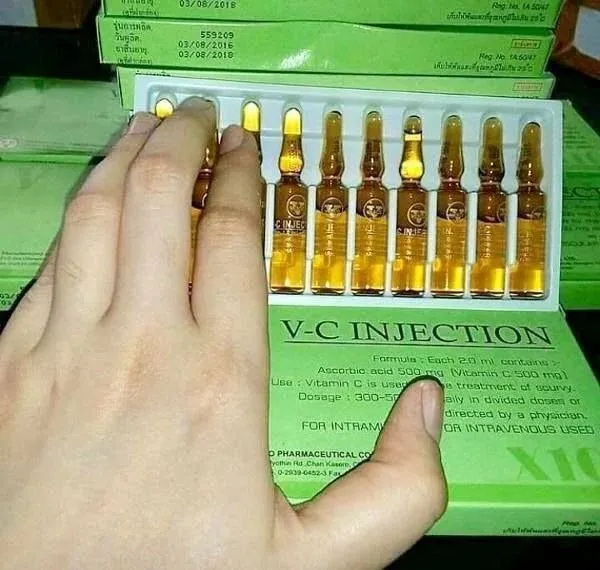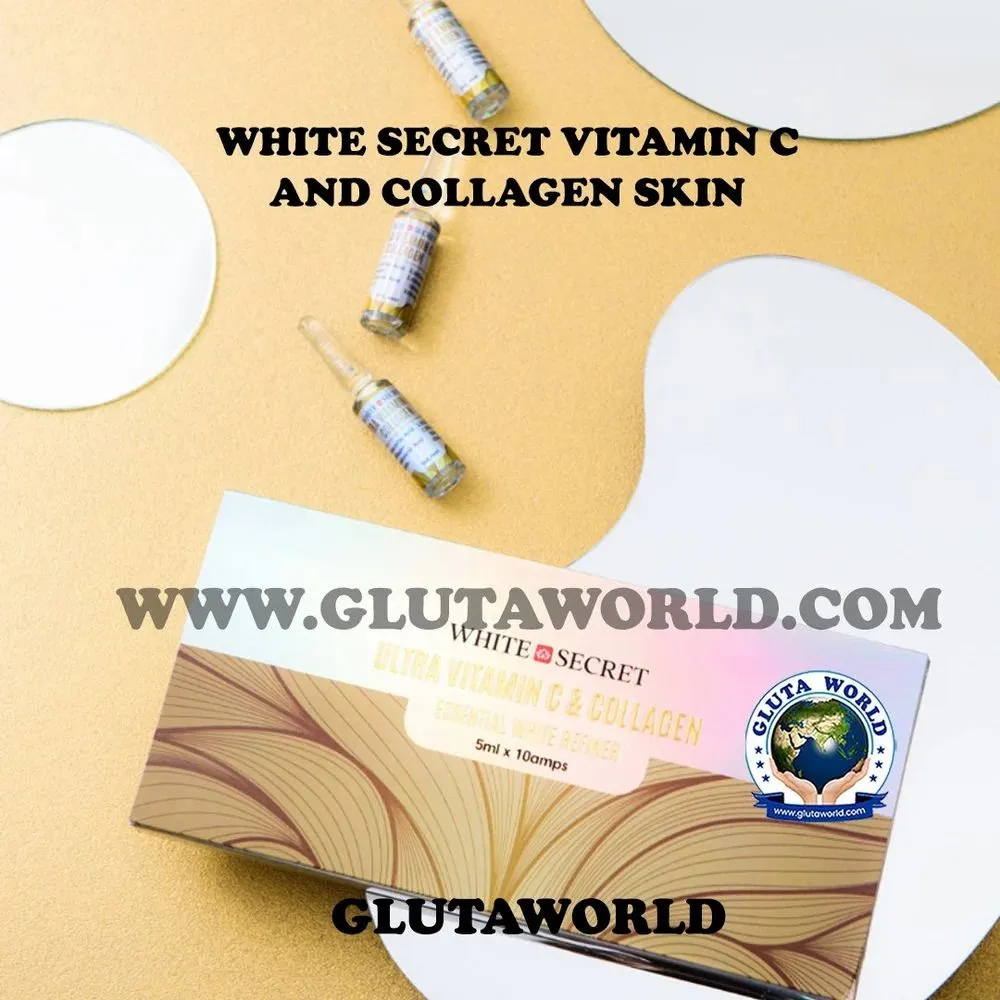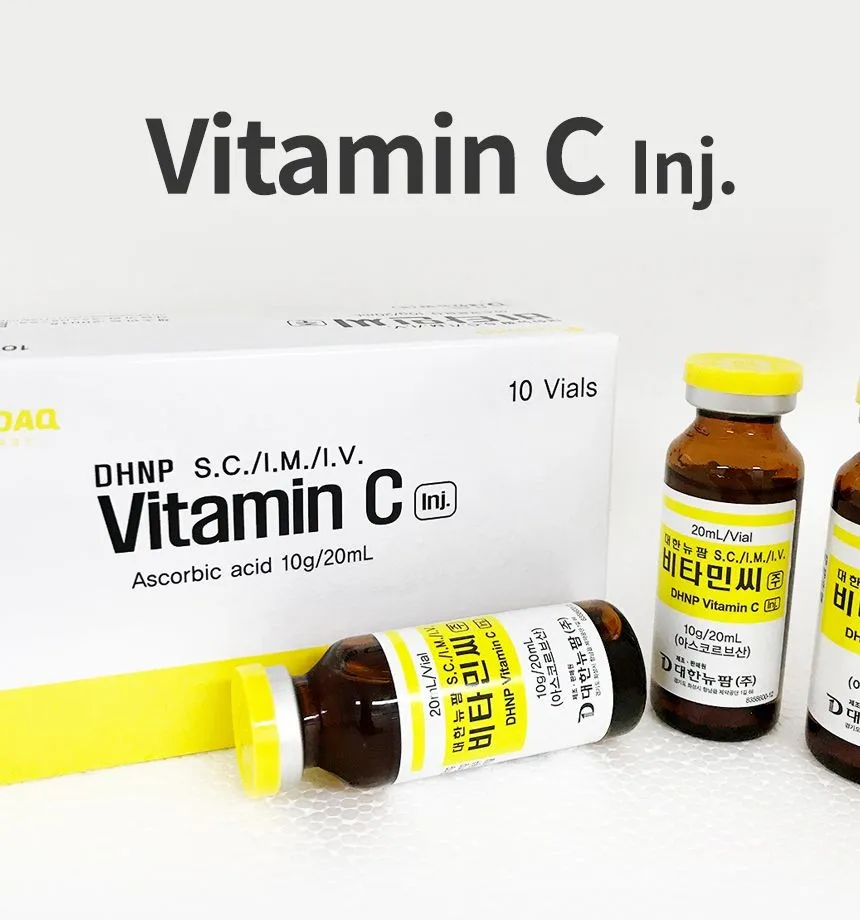What is Vitamin C Injection for Whitening
Vitamin C injections have gained popularity as a method for skin whitening, promising a brighter and more even skin tone. This treatment involves administering a concentrated dose of vitamin C directly into the bloodstream. Unlike oral supplements, injections bypass the digestive system, allowing for potentially higher absorption rates. Vitamin C, also known as ascorbic acid, is a powerful antioxidant with several benefits for skin health, including the ability to lighten the skin. The procedure is typically performed by a healthcare professional or a licensed aesthetician. The use of vitamin C injections for whitening purposes is based on its ability to influence melanin production.
The Science Behind Vitamin C Whitening
The effectiveness of vitamin C injections for skin whitening stems from its impact on melanin, the pigment responsible for skin color. The body produces melanin through a complex process involving the enzyme tyrosinase. Vitamin C acts as an inhibitor of this enzyme, reducing the production of melanin. As a result, the skin gradually lightens, and dark spots or hyperpigmentation may fade. Additionally, vitamin C is an antioxidant that helps protect the skin from damage caused by free radicals, which can contribute to uneven skin tone and premature aging. Regular injections can help diminish the signs of aging and promoting a youthful appearance. The scientific basis highlights the mechanisms through which vitamin C can improve skin tone.
How Vitamin C Impacts Melanin Production

Vitamin C’s role in skin whitening is primarily due to its ability to inhibit tyrosinase, an enzyme crucial for melanin synthesis. Melanin is produced by melanocytes, specialized cells in the skin. Tyrosinase catalyzes the conversion of tyrosine to dopaquinone, a precursor of melanin. By blocking this enzyme, vitamin C reduces the amount of melanin produced, leading to lighter skin. The effectiveness of vitamin C injections in reducing melanin production makes it an attractive option for those seeking to lighten their skin. Vitamin C also helps to neutralize free radicals and protect the skin. This action contributes to a more radiant and even skin tone. For the best results, multiple injections may be necessary.
Fact 1 Effective Skin Whitening
One of the primary benefits of vitamin C injections is their potential to effectively whiten skin. The mechanism behind this is the inhibition of tyrosinase, as previously mentioned. This results in a reduction in melanin production, gradually leading to a lighter complexion. The efficacy of vitamin C injections can vary depending on individual skin types, the concentration of vitamin C used, and the frequency of treatments. Many users report visible changes in skin tone and a reduction in dark spots and hyperpigmentation after several sessions. It’s important to manage expectations and consult a healthcare professional to determine whether vitamin C injections are suitable for specific skin concerns and goals. Furthermore, the effects are often gradual.
Why Vitamin C Works for Whitening
Vitamin C works for skin whitening primarily because of its antioxidant properties and its ability to inhibit tyrosinase. This dual action makes it highly effective in improving skin tone and reducing hyperpigmentation. As an antioxidant, vitamin C neutralizes free radicals, which can damage skin cells and contribute to uneven skin tone. By protecting the skin from environmental stressors, it helps maintain a brighter and more youthful appearance. The tyrosinase-inhibiting effect directly reduces melanin production, the key pigment in the skin. With consistent treatments, vitamin C injections can lead to noticeable and sustained improvements in skin tone. Furthermore, Vitamin C promotes skin health.
The Role of Antioxidants

Antioxidants play a crucial role in skin health by protecting against free radicals, unstable molecules that can damage skin cells and accelerate aging. Vitamin C is a potent antioxidant that helps neutralize these free radicals, preventing oxidative stress and maintaining skin health. By reducing oxidative damage, vitamin C helps maintain a brighter, more even skin tone and reduces the appearance of fine lines and wrinkles. This antioxidant action also enhances the effectiveness of other skin-whitening treatments. Regular intake of antioxidants, whether through injections or diet, helps protect skin from environmental damage. Including vitamin C in your skincare routine can provide a protective shield against premature aging.
Fact 2 Improving Skin Tone and Texture
Beyond skin whitening, vitamin C injections also contribute to improving skin tone and texture. The antioxidant properties of vitamin C help to promote a more even complexion. By reducing the effects of free radicals and environmental damage, it helps to maintain a youthful and radiant appearance. Regular injections can improve skin texture, making it smoother and more supple. This can also reduce the appearance of imperfections and minor scars. Skin tone and texture are improved through increased collagen production and reduced inflammation. The combined effects of vitamin C injections often lead to a noticeable enhancement in skin appearance. They enhance the overall skin health, which promotes a healthy and radiant glow.
Benefits of Vitamin C
Vitamin C offers numerous benefits for skin health beyond whitening. It is a powerful antioxidant that protects against free radical damage, which can lead to premature aging and skin damage. It also supports collagen production, vital for skin elasticity and firmness. Other benefits include reducing inflammation, which can improve skin tone and texture. Vitamin C boosts the effectiveness of other skincare treatments. Its benefits make it an essential component of skin health. Regular vitamin C intake helps in repairing damaged skin. Therefore, adding vitamin C to your skincare routine can provide comprehensive support.
Addressing Hyperpigmentation and Scars

Vitamin C injections are effective in addressing hyperpigmentation and minor scars. The reduction in melanin production helps fade dark spots and uneven skin tone. As an antioxidant, it helps to repair and protect skin from damage, which can improve the appearance of scars and marks. Consistent treatments can lead to a significant reduction in hyperpigmentation. They work to encourage a more even and radiant skin tone. It also accelerates the skin’s natural healing process. This can enhance the skin’s texture and appearance. Vitamin C’s multi-faceted approach makes it a valuable treatment option for those looking to improve their skin’s appearance.
Fact 3 Boosting Collagen Production
Vitamin C is essential for collagen production, a protein that provides structure and elasticity to the skin. Collagen is the main component of connective tissue. This helps maintain skin firmness and reduces the appearance of wrinkles. Vitamin C is a cofactor for enzymes involved in collagen synthesis. This means it is necessary for the body to create and maintain collagen. Regular vitamin C injections help to stimulate collagen production, leading to firmer, more youthful-looking skin. Increased collagen production also enhances skin texture. Vitamin C helps to improve the overall health and appearance of the skin.
Collagen’s Role in Skin Health
Collagen is a crucial protein in maintaining skin health, providing structure, strength, and elasticity. As we age, collagen production naturally declines. This can result in wrinkles, fine lines, and sagging skin. Collagen keeps the skin firm and youthful. By promoting collagen synthesis, vitamin C injections can help counteract these signs of aging. Maintaining sufficient collagen levels leads to healthier, more resilient skin. The structural support provided by collagen makes the skin smoother and more plump. The more collagen produced, the younger you look and feel.
The Impact of Vitamin C on Collagen Synthesis

Vitamin C significantly impacts collagen synthesis by acting as a cofactor for the enzymes. These enzymes are responsible for the formation of collagen fibers. It is essential for cross-linking collagen molecules. This process stabilizes the collagen structure. Vitamin C’s role in supporting collagen production directly benefits the skin. It improves its firmness, reduces wrinkles, and enhances overall texture. Regular vitamin C injections thus stimulate the skin’s natural processes. The injections support healthy, youthful-looking skin. Incorporating vitamin C into your skincare routine is an effective way to boost collagen levels.
Fact 4 Safety and Side Effects
While generally considered safe, vitamin C injections can have side effects. The most common side effects include pain, swelling, and redness at the injection site. Some individuals may experience temporary skin irritation or itching. It is important to ensure that the injections are administered by a qualified healthcare professional. This will minimize the risk of complications. In rare cases, more severe side effects, such as allergic reactions or infections, can occur. Consulting with a doctor prior to beginning treatments is crucial to assess suitability. It is important to be aware of potential risks and discuss any concerns. Proper administration and aftercare practices are essential for ensuring a safe and effective experience.
Possible Side Effects
The side effects of vitamin C injections are typically mild and temporary. The most common side effects include redness, pain, and swelling at the injection site. Some people may experience mild itching or skin irritation. More severe reactions are rare but can include allergic reactions or infections. To minimize risks, injections should be administered by trained professionals. Always disclose any existing medical conditions or allergies. This is important to ensure your safety. If you notice any unusual symptoms after an injection, seek medical advice immediately. This can ensure prompt intervention and care.
Who Should Avoid Vitamin C Injections

Certain individuals should avoid vitamin C injections due to potential risks. Those with known allergies to ascorbic acid or other ingredients in the injection should not undergo treatment. People with kidney problems or a history of oxalate kidney stones need to exercise caution. High doses of vitamin C can increase oxalate levels. Pregnant or breastfeeding women should consult their doctor before starting injections. It is important to consider your medical history and current health status. This ensures that you receive the safest treatment possible. Always discuss any concerns with a healthcare professional to determine the best course of action.
Fact 5 What to Expect from Treatments
The process of receiving vitamin C injections involves a series of steps, from initial consultation to post-treatment care. First, a healthcare professional will assess your skin and medical history. They will also discuss your goals and expectations. Next, the injection is administered, typically into a muscle or vein. The procedure is usually quick and relatively painless, though some people might experience mild discomfort. The number of sessions varies based on individual needs and desired outcomes. Results are often gradual, with improvements becoming noticeable over several weeks or months. To maintain results, follow-up treatments may be necessary. Remember to follow post-injection care instructions.
The Injection Process
The injection process typically involves a consultation, preparation, and administration steps. Before treatment, a healthcare provider assesses your skin type. This ensures the injections are suitable. The injection site is then cleaned and sterilized to minimize risk. A fine needle is used to inject the vitamin C solution, usually into a vein or muscle. The procedure typically takes a few minutes. After the injection, the site is covered with a small bandage. You might experience some mild discomfort or bruising at the injection site. Following the aftercare instructions is important to promote healing and optimize results. The treatment process is designed to be efficient and minimally invasive.
Post-Injection Care

After receiving vitamin C injections, proper aftercare is crucial to promote healing and maximize benefits. Follow the healthcare provider’s instructions carefully. These might include keeping the injection site clean and dry. Avoid strenuous activities for a day or two to prevent bruising or swelling. Applying a cold compress can help to alleviate discomfort. If you notice any signs of infection, such as increased redness, pain, or pus, contact your doctor immediately. Protecting your skin from the sun and maintaining a healthy lifestyle can also contribute to the best results. Following the care instructions ensures both the effectiveness and safety of the treatment. Ensure optimal healing and skincare.
